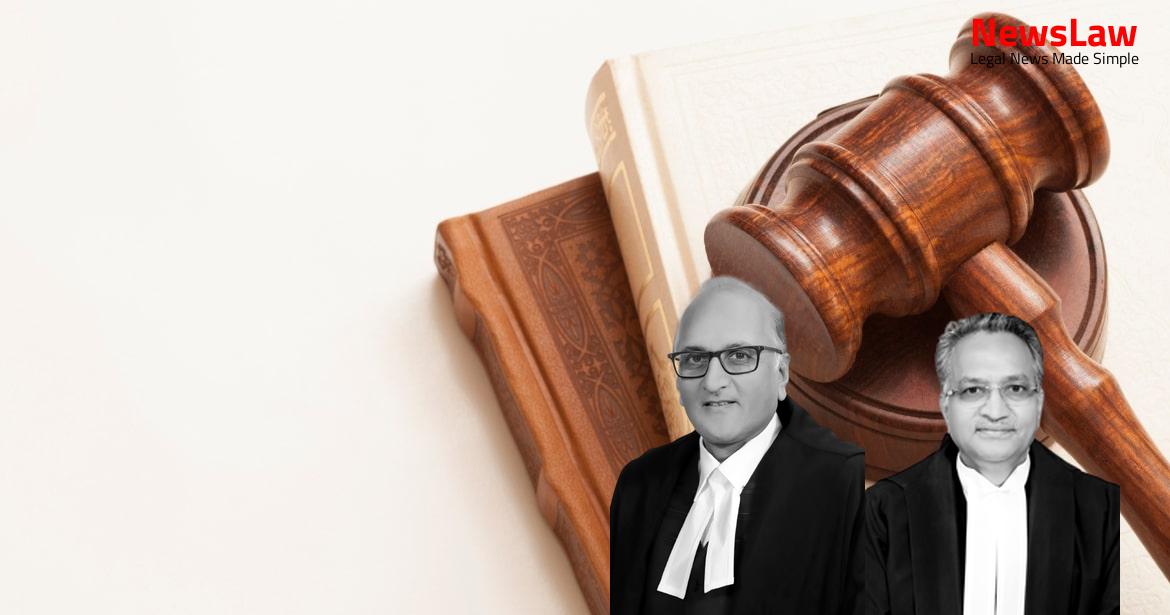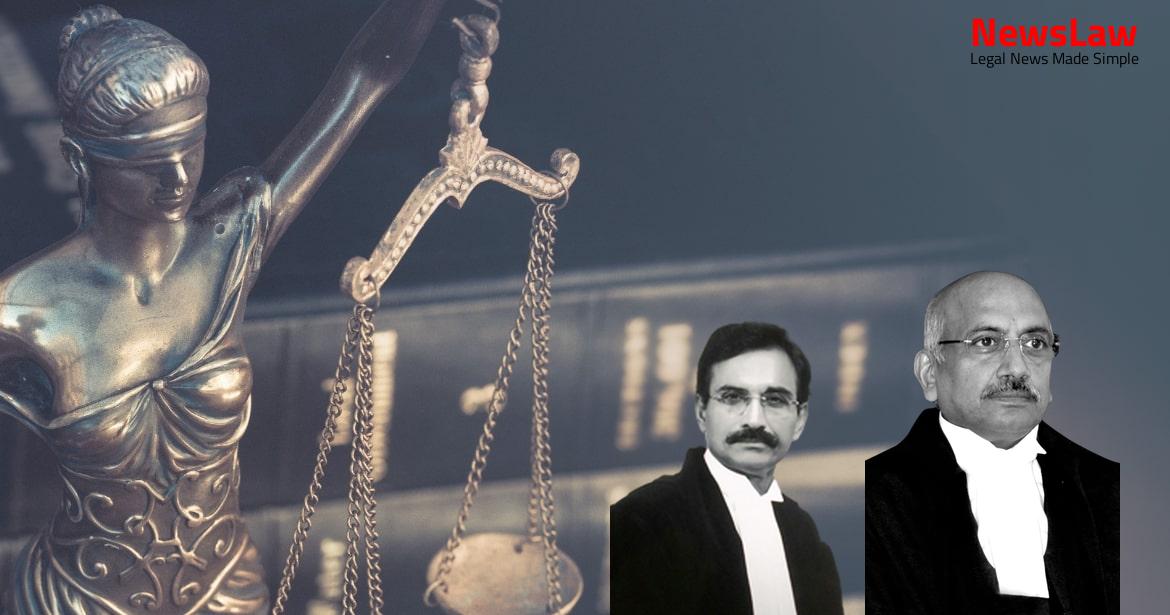In a significant legal development, the Supreme Court of India has issued a pivotal judgment safeguarding the rights of divorced Muslim women in the country. This judgment sheds light on the maintenance entitlements of divorced Muslim women under Section 125 of CrPC 1973 and the 1986 Act, providing clarity on their post-divorce financial security.
Facts
- The husband pronounced triple talaq on 25.09.2017
- The wife left the matrimonial home on 09.04.2016 due to deteriorating relationship
- Husband attempted to send maintenance for the iddat period but wife refused
- Wife moved petition for interim maintenance under Section 125(1) of CrPC 1973
- High Court modified the Order of the Family Court in terms of interim maintenance payable by the Appellant.
- The quantum of interim maintenance was decreased from INR 20,000 to INR 10,000 per month.
Also Read: Mistaken Bid Rectification Case: Balancing Equity in Tender Matters
Arguments
- The Appellant contends that Section 125 of CrPC 1973 does not prevail due to the enactment of the 1986 Act.
- It is argued that a divorced Muslim woman should file under Section 5 of the 1986 Act, not Section 125 of CrPC 1973.
- The Appellant cites Danial Latifi and Iqbal Bano cases to support the argument.
- The amicus curiae argues that the remedy under Section 125 of CrPC 1973 is still available for divorced Muslim women.
- Special cases like maintenance under 1986 Act are an exception.
- Sections 3 and 4 of the 1986 Act are said to override other statutes in the same field.
- The Appellant questions if accepting rights under 1986 Act would bar filing under Section 125 of CrPC 1973.
- Section 127(3)(b) of CrPC 1973 is discussed in relation to maintenance rights post-divorce.
- The Court emphasizes balancing benefits post-divorce for equitable outcomes.
- The principle of harmonious construction is cited from M/s. Jain Ink Manufacturing Company case.
- Mr. Agrawal highlighted the distinction between the object and purpose of the provisions under discussion.
- The historical perspective leading to a clarified legal position on maintenance under Section 125 of CrPC 1973 and rights guaranteed to a divorced Muslim woman under the 1986 Act were considered.
- The issue of whether the non-obstante clause in Section 3 of the 1986 Act supersedes the rights under Section 125 of CrPC 1973 was not addressed in the Danial Latifi case.
- Paragraph 33 of the judgment implies that a divorced Muslim woman is entitled to maintenance rights on par with other women, and any other interpretation would violate fundamental rights under Articles 14, 15, and 21 of the Constitution of India.
- Mr. Agrawal presented conflicting decisions of High Courts regarding the interpretation of the 1986 Act versus CrPC 1973 provisions, highlighting the legal challenges in this regard.
Also Read: Judgment Summary: Balancing Equity in Commercial Contracts – Original Name v. State
Analysis
- Section 125 of CrPC 1973 is a measure for social justice to protect the weaker sections, irrespective of personal laws of the parties.
- The 1986 Act provides entitlements to a divorced Muslim woman, including maintenance, provision, mahr, and properties.
- The Act requires the husband to make a reasonable and fair provision for his divorced wife and provide maintenance for her.
- If the husband fulfills his obligations under the Act or personal law, the divorced Muslim woman can still seek maintenance under Section 125 of CrPC 1973.
- The Act and CrPC provisions aim to prevent destitution and ensure divorced women receive fair maintenance.
- An order under Section 125 of CrPC 1973 can only be cancelled through an application under Section 127(3)(b) if certain conditions are met.
- Failure to comply with maintenance orders can result in fines or imprisonment as per the Code of Criminal Procedure.
- The Act was challenged for its constitutionality, but upheld by the court.
- The entitlements of a divorced Muslim woman at the time of divorce were specified.
- The Act was upheld by interpreting it in a manner that did not foreclose the secular rights of a divorced Muslim woman.
- Various judgments and Acts were referenced to support the right of maintenance for divorced Muslim women.
- The validity of the Act was upheld by the Constitution Bench in Danial Latifi v. Union of India (2001) 7 SCC 740.
- The purpose of Section 125 of CrPC 1973 was outlined as preventing vagrancy and destitution.
- The Act brought about by the legislature aimed to clarify the position regarding maintenance of divorced Muslim women.
- The entitlements or rights of a divorced Muslim woman under Section 3 of the 1986 Act are wider than just maintenance.
- The Magistrate has the jurisdiction to grant maintenance under Section 125 of CrPC if there is no divorce in the eye of the law.
- Interim maintenance under Section 125 of CrPC must be determined within 60 days with emphasis on concluding the provision within the iddat period.
- Non-compliance of orders under Section 125 of CrPC may lead to imprisonment up to one month.
- A divorced woman can seek maintenance under Section 125 of CrPC even during marriage without contingent upon divorce.
- Parliament intended to provide divorced women with sufficient means of livelihood after divorce under Section 125 of CrPC.
- The word ‘provision’ in the Act indicates something provided in advance to meet needs.
- Failure to comply with maintenance orders under the 1986 Act may lead to imprisonment.
- Section 7 of the 1986 Act is transitional and interpretations of Section 5 do not conflict with the senior advocate’s contentions.
- Section 3 and 4 of the 1986 Act with non-obstante clauses must not override other rights provided by enactments.
- The interpretation of the Act should uphold its validity if possible.
- Section 3 of the 1986 Act aims for socio-beneficial legislation to provide for divorced Muslim women.
- Petitions under the 1986 Act must be decided within a month while no specific time frame is prescribed under Section 125 of CrPC.
- Equivalent rights of maintenance exist under both Section 125 of CrPC and Section 3 of the 1986 Act.
- Parliament’s intent was to give a beneficial construction to expressions in the 1986 Act, particularly ‘within iddat period.’
- Maintenance rights under personal or customary law should not be used to evade liability under Section 125 of CrPC.
- The harmonious construction of the right to seek maintenance for a divorced Muslim woman under the provisions of CrPC 1973 and despite the enactment of the 1986 Act is crucial.
- Decisions rendered by various High Courts, including the one referred to, do not lay down the correct position of law and are deemed bad in law.
- The continued existence of the right to seek maintenance for a divorced Muslim woman is maintained under CrPC 1973.
Also Read: Manmohan Nanda vs United India Insurance Co. Ltd. – Insurance Claim Dispute
Decision
- The able assistance provided by the learned amicus curiae greatly helped the Court in resolving the legal issues.
- The Impugned Order dated 13.12.2023 from the High Court of Telangana has been upheld.
- Criminal Appeal No 2842 of 2024 has been dismissed.
- Any pending applications have also been disposed of.
Case Title: MOHD ABDUL SAMAD Vs. THE STATE OF TELANGANA (2024 INSC 506)
Case Number: Crl.A. No.-002842-002842 – 2024



